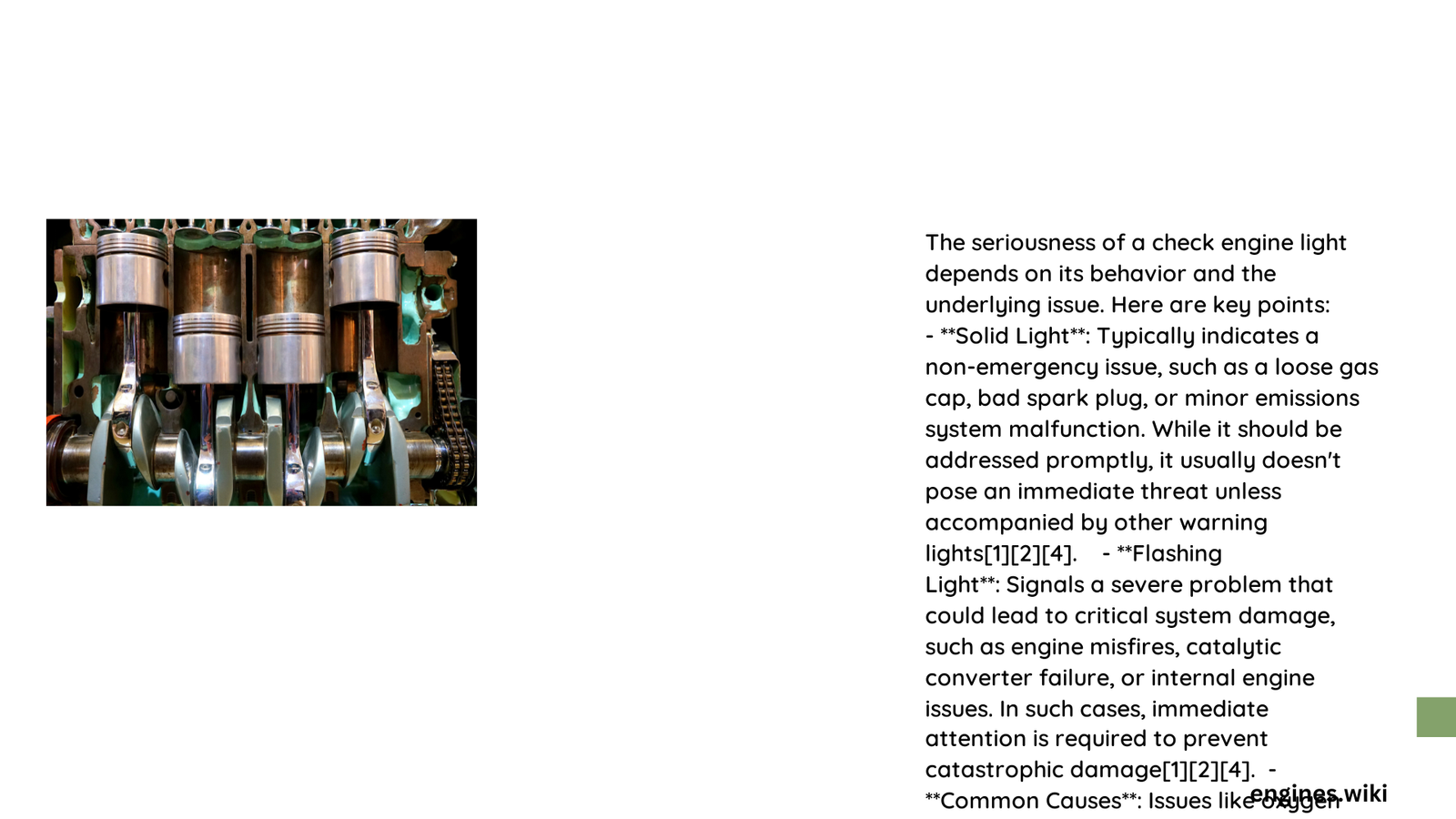Check engine lights can range from minor issues like a loose gas cap to serious problems indicating potential engine failure. Nearly 20% of vehicle owners experience an active check engine light, with repair costs varying from free to over $1,300. Understanding the severity, diagnostic codes, and potential implications is crucial for preventing costly damage and maintaining vehicle performance.
Are Check Engine Lights Always a Major Concern?
Check engine lights are not always an immediate emergency, but they should never be ignored. The severity depends on the specific diagnostic trouble code (DTC) and the underlying issue. Some problems can be minor and inexpensive to fix, while others might indicate significant mechanical failures that require urgent attention.
What Determines the Seriousness of a Check Engine Light?
Several factors contribute to the seriousness of a check engine light:
- Diagnostic Trouble Code (DTC)
- Minor codes like P0440 (loose gas cap)
- Moderate codes like P0300 (cylinder misfires)
-
Serious codes like P0420 (catalytic converter failure)
-
Potential Repair Costs
| Issue | Average Repair Cost | Severity |
|——-|———————|———-|
| Gas Cap | $0-$25 | Low |
| Oxygen Sensor | $253 | Moderate |
| Catalytic Converter | $1,304 | High |
| Spark Plugs | $398 | Moderate |
What Are Common Causes of Check Engine Lights?
Loose or Faulty Gas Cap
- Frequency: Nearly 50% of recommended repairs
- Cost: Free to tighten, $25 to replace
- Impact: Reduced fuel economy
Oxygen Sensor Failure
- Potential Consequences:
- 40% decrease in fuel efficiency
- Increased emissions
- Potential engine performance issues
Catalytic Converter Malfunction
- Serious Implications:
- Toxic exhaust fumes
- Significant exhaust system damage
- Expensive replacement costs
How Should You Respond to a Check Engine Light?
- Don’t Panic
- Not all lights indicate catastrophic failure
-
Use an OBD-II scanner to read the code
-
Immediate Actions
- Check gas cap first
- Look for obvious signs of trouble
-
Schedule professional diagnostic test
-
Professional Diagnosis
- Use certified mechanics
- Perform comprehensive system check
- Address issues promptly to prevent escalation
When Is Immediate Action Required?
Warning Signs Requiring Urgent Attention:
– Flashing check engine light
– Significant loss of power
– Unusual noises or vibrations
– Smoke from exhaust
– Sudden changes in vehicle performance
Conclusion

While check engine lights vary in seriousness, they should never be completely ignored. Prompt diagnosis and appropriate action can save significant repair costs and prevent potential vehicle damage.
